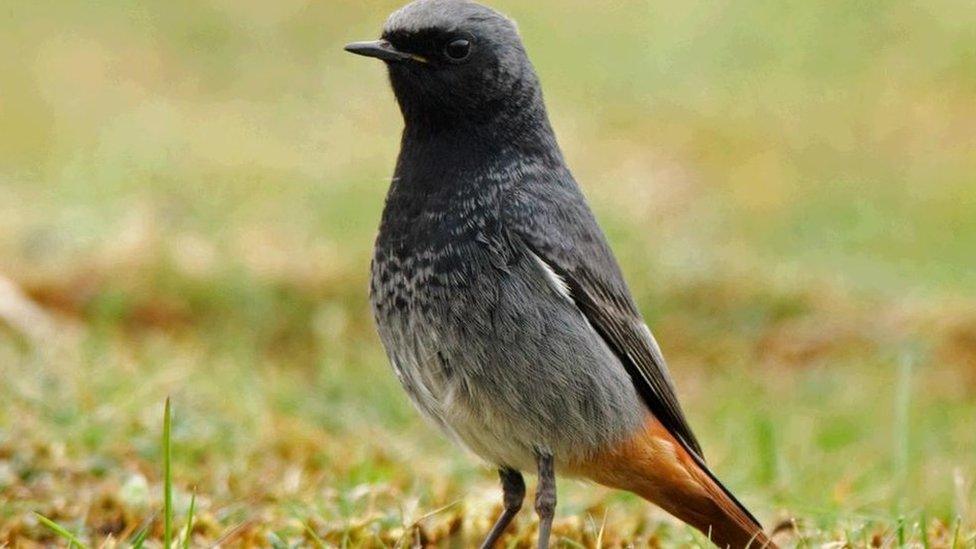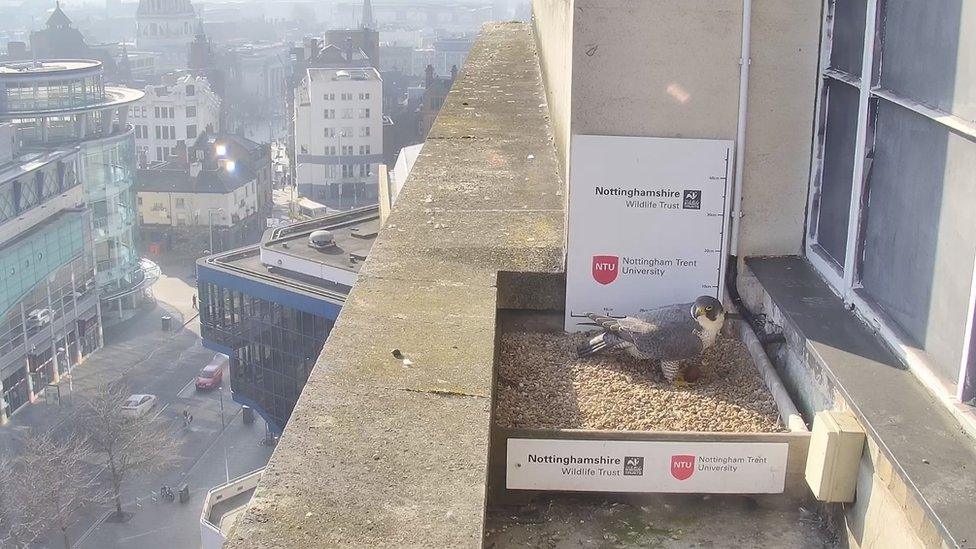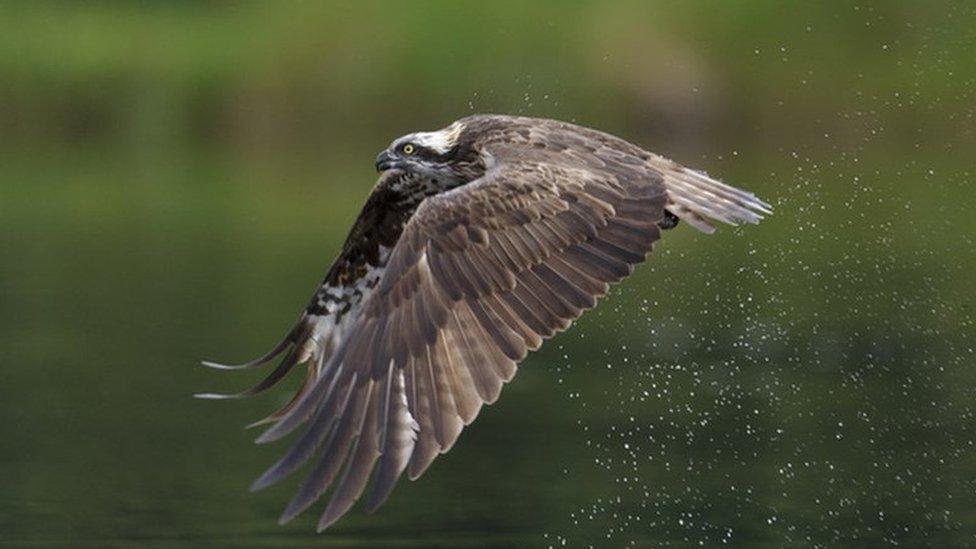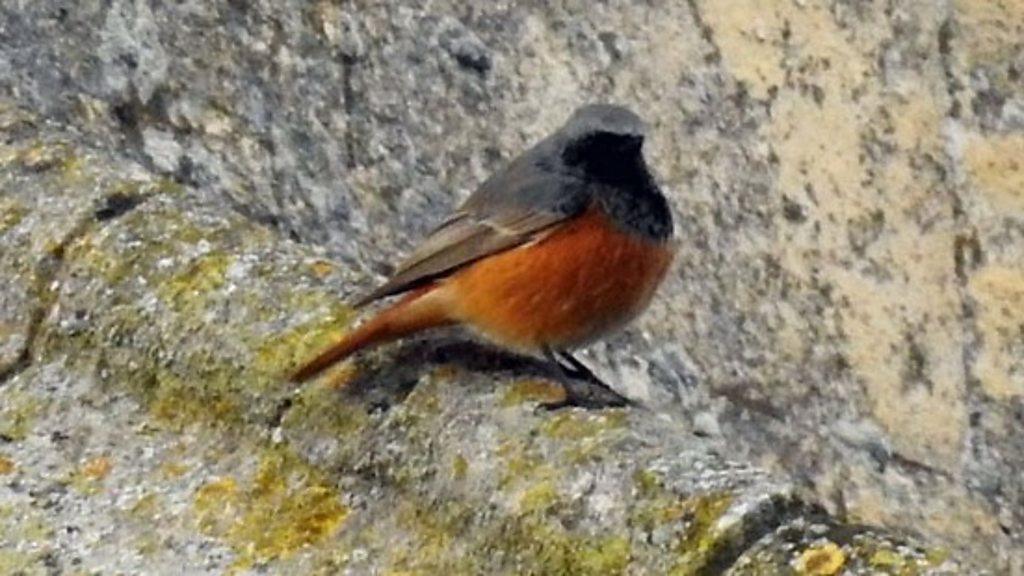Rare sighting of 'bomb-site bird' in Nottingham excites charity
- Published

A male black redstart was spotted in Nottingham city centre last week
Nature lovers are hoping a rare sighting of a bird in Nottingham will herald a permanent return to the city.
Nottinghamshire Wildlife Trust said a confirmed sighting of a male black redstart took place at an undisclosed location last week.
Fewer than 100 breeding pairs are believed to be active in the UK.
A member of the chat sub-family that also includes robins and nightingales, the rare red-tailed fliers have adapted to breed in industrial areas.
Originally favouring stony mountainous regions, after World War Two they began settling on bombed-out buildings resembling the steep and narrow cliffs and crags they favour, earning the nickname "bomb-site bird" as they nested at urban sites around the country.

Black redstart
A member of the Phoenicurus genus, the redstart refers to the colour of their tails
About the size of a robin, they eat insects, spiders and worms, as well as some berries and seeds
The RSPB estimates there are between 19 and 44 breeding pairs in the UK, with about 400 birds wintering in the country
Black redstarts are protected under Schedule 1 of the Wildlife and Countryside Act 1981, external, but have recently been moved from the red list, external of Birds of Conservation Concern to amber
Source: RSPB

Nottinghamshire Wildlife Trust has previously installed nesting boxes on buildings around the city, including Castle Rock Brewery and Nottingham Trent University's Confetti building.
Michael Walker, the trust's nature recovery manager, said a male being spotted in the city was "exciting".
"Whilst this was an isolated sighting, we hope that the birds will become re-established as regular breeding birds in the city and we're planning survey checks at all the sites where we've installed nest boxes over the coming months," he said.

Follow BBC East Midlands on Facebook, external, on Twitter, external, or on Instagram, external. Send your story ideas to eastmidsnews@bbc.co.uk, external.
Related topics
- Published1 April 2022

- Published5 August 2021

- Published12 December 2016
